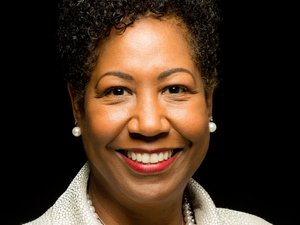
Heather Redman wants a challenge.
Redman, co-founder and managing partner at Seattle-based venture capital firm Flying Fish Partners, started her firm six years ago in what she characterized as a sort of mid-life crisis. Once you no longer have to work to eat, according to Redman, work becomes more about discovering what matters.
“I really wanted to do something that was both very hard for me personally and challenging, other than running triathlons or something, which I did not want to do, but also something that I felt would be a real contribution to my community,” Redman said. “Flying Fish felt like it would be very hard but something that I could do and also a real contribution to the community.”
Redman and her fellow managing partners are now leading the young venture capital firm as it tries to find promising startups in artificial intelligence and machine learning, Flying Fish’s focus. The firm is one of multiple young firms in the Seattle area trying to grow the region’s reputation as a venture capital hub.
Flying Fish further cemented its credibility in May when it raised its second fund, a $70 million haul, and established a presence in Alberta, Canada. The firm has invested in the sales and marketing data startup Falkon and the data science startup YData.
The Business Journal spoke with Redman about Flying Fish’s focus, the current market and being an introvert.
About Heather Redman:
- Position: Managing partner and co-founder at Flying Fish Partners
- Age: 58
- Hometown: Los Angeles technically, but she moved around a lot as a child
- Current residence: Downtown Seattle
- Education: Bachelor’s from Reed College, law degree from Stanford
- Interests outside of work: “Anything related to how we make the Seattle region stronger and better. Beyond that, I’m interested in how we make the United States stronger and better.”
- Favorite books: War and Peace, The Master and Margarita
How have things been since raising the second fund?
It’s nice to have that dry powder because in a downturn, you have a lot of opportunities to invest at attractive valuations. Sadly, when people are laid off, they often become more entrepreneurial. It’s sad to get laid off, but it’s great if you have capital to have opportunities to invest in people who are like, “Gee, I lost that cushy job. This is probably a great time to think about doing that thing I always wanted to do but didn’t have a real good reason to do when I was sitting back pulling in the cushy check.”
What kinds of startups are you targeting?
When we started, I can’t tell you how many people said, “AI, that’s too narrow.” Which shows you how quickly all of our thinking has evolved in terms of how important AI is and how significant it is. Now they’re like, “Well AI, that’s everything.” … Because we invest so early stage, when it’s sort of two people or three people or four people, we don’t really say, “We’re only investing in travel and health care.” We want to see the best ideas come forward very early on.
You said previously that raising a second fund lends the firm more credibility. What is the next legitimacy threshold you are looking to cross?
When you start making people general partners, additional new people who were not part of your original founding team. That is a big step in the evolution of a firm. That really does show you have handled that succession planning. We are a number of years out from that, but I think that leadership transition, which is very hard to handle, a lot of firms don’t do it well, and you see them disappear. … I think venture capital firms have not learned, in many cases, the lessons from other partnership models and need to really think about that.
A lot of VC firms are not as old as other partnership models, like law firms, some of which have been around for 100-plus years.
Exactly. Venture is not an old game, so a lot of firms haven’t been through a lot of these leadership transitions.

A day in the life of Heather Redman
- Morning: I try to get up at the same time every day, 6:30 a.m.. First step, fire up the mushroom coffee. Ideally do a little quick meditation and then hit the shower and start working if it is a work from home day or head to the office.
- Workday: Even though we all try to maintain a lot of work time on the calendar, my day is mostly meetings, which I love, but it is usually back-to-back in-person, Zoom or phone meetings. I try to make some of those in-person walking or at least coffee. The loop down by the new waterfront park and aquarium is my favorite.
- Evening: I try to get home to yoga in our building’s communal yoga studio, to the gym or to our Peloton by 6 p.m. most nights and then usually do some emails. My husband and I eat weird dishes we’ve made up in front of the screen with some show we are watching if we get a chance. We are also loving getting out more and more and having people over for fundraisers and dinner parties.
What’s missing from the Seattle VC scene?
We could always use more diversity. We still don’t have a lot of diversity in our (general partner) ranks. I really believe that there still is a tendency to have diversity at the lower levels of firms but not at the GP level, which is where the real economics are, and also not at the founder level.
Do you have any concerns in this market downturn?
I’m very concerned about the folks who are here on visas. I would love for us to see something done with the help of government, even local government, to see if we can’t do something to figure out some kind of stop gap. Maybe it’s a government employer that can extend that 60 days somehow, but I just do not want to see that talent have to leave the country. A lot of it is the really great AI talent that could be starting new companies here or could be joining a great company here, but 60 days is just not enough time.
What is one thing most people don’t know about you?
I’m an introvert. I’ve told people, I’m quite sure, many times, but people never believe it because I’m always running around talking to people all the time.
How do you overcome that?
I think by running around and talking to people all the time.
This interview has been edited for length and clarity.







